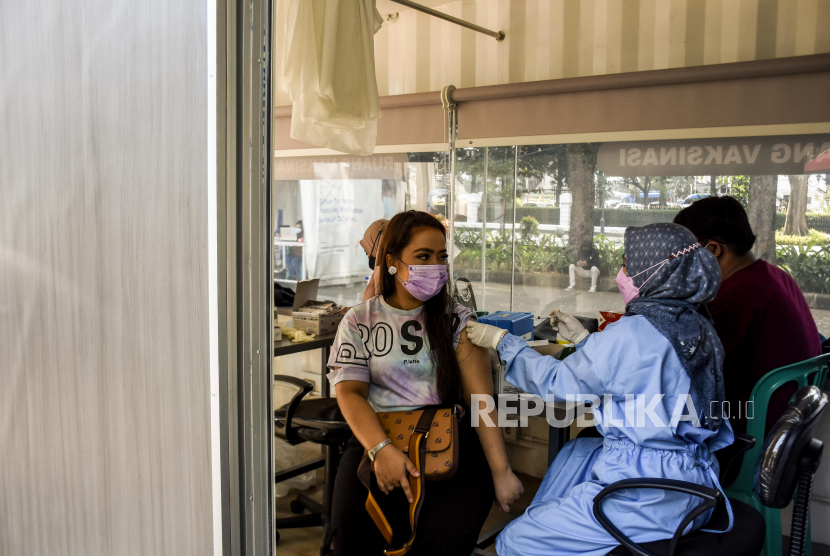This study can help reassure women who are still worried about being vaccinated.
REPUBLIKA.CO.ID, JAKARTA — A recent study found that giving Covid-19 vaccine it can affect the menstrual cycle. However, according to research published in the journal Obstetrics & Gynecology The vaccinated women only experienced a slight change in their menstrual cycle, which was less than a day.
The study’s lead author, Dr Alison Edelman, said her research could help reassure, confirm and serve as a counseling tool for women who are still concerned that the COVID-19 vaccine will affect their health. fertility and menstruation. The conclusion of this study shows that the impact of the vaccine is small at the population level.
“However, it may mean something different for each individual who is menstruating,” Dr. Edelman, professor of obstetrics and gynecology at Oregon Health and Science University School of Medicine, Dr. Alison Edelman, told Today, quoted on Saturday (8/1/2022).
According to Dr. Edelman, the study provides more evidence that the Covid-19 vaccine does not affect fertility and its effect on short-term menstruation. Dr Christopher M Zahn, vice president for practice activities at the American College of Obstetricians and Gynecologists, explained that menstruation can be affected by a variety of factors, including stress, lifestyle changes, or a variety of underlying conditions.
“New paper published in Obstetrics & Gynecology provides important new evidence that underscores that any impact of the Covid-19 vaccine on menstruation is minimal and temporary,” said Zahn.
For the study, Edelman and his colleagues analyzed data from 3,959 women with “normal menstrual cycle length” using a tracking app called Natural Cycles. Approximately 2,403 participants were vaccinated using the Pfizer-BioNTech, Moderna, or Johnson & Johnson vaccine types.
While the remaining participants, around 1,556, have not received the Covid-19 vaccine. The researchers examined three menstrual cycles before vaccination, three during, and after.
A healthy menstrual cycle generally lasts from 24 days to 38 days and can vary up to eight days. After the first injection of the Covid-19 vaccine, a woman’s cycle was 0.71 days longer and after the second injection 0.91 days longer.
“In the long term, we don’t see anything that can prevent someone from getting vaccinated,” said Dr. Edelman.
Through his research, Dr. Edelman can inform women that they may experience slight changes in the length of their menstrual cycle. However, it is only temporary.
Experts agree that the findings should comfort those concerned about infertility as a result of the Covid-1 vaccination. Professor at the Feinstein Institutes for Medical Research at Northwell Health who was not involved in the study, Christine Metz, said one of the main concerns among those who were not vaccinated was that they feared the vaccine would affect their fertility.
“What this paper shows is that the length of the menstrual cycle, which is a sign of a healthy reproductive state, is not altered by the vaccine. This change is small, 7/10 days,” Metz said.
Even so, Metz said, the study had some limitations. This application costs money to use to reduce the diversity of the population that uses it.
“There are more white people represented in this group. More college educated people are represented in the group,” he said.
Metz said he was disappointed that some people who use the app track their fertility for family planning or use it as a non-hormonal contraceptive. What’s more, this study didn’t examine something commonly known to affect menstruation: stress.
“The authors did not assess stress. There may be vaccine-related stress as well as pandemic stress. Maybe people who are vaccinated have more pandemic-related stress than those who don’t,” Metz said.
– .


